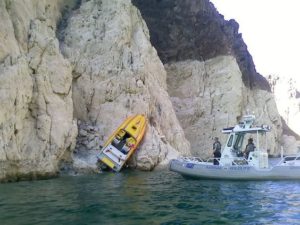Boating Accident Claims
Rivers, lakes, oceans and lochs are irresistible, more so if you have a boat and you love boating. Needless to say, a wonderful water escapade can swiftly become a worst and painful adventure. Boating accidents may result to harm and even death. There are about 200 death tolls involving boats in Canadian waters every year according to the Red Cross Society of Canada.
In legal perspective, boating accident claims is very complex. It is different from automobile accident claims. It has its own arrays of regulations and provisions. However, to be able to get damage compensation, you must choose wisely a personal injury claims lawyer who is conversant with the Marine Liability Act.

The Marine Liability Act
The act on Marine Liability provides set of rules for allotment of compensation to the person who is injured or killed in a boating accident. It provides the statute of limitations to file a claim and its maximum compensation.
For boating accidents that leads to injury and loss of life, the maximum liability resulting from negligence in boat operation is $1,000,000 (for boats weighing 300 tonnage or lesser). This maximum liability does not apply if the boat owner is found reckless and unreasonable beyond doubt. It may go beyond, in that case.
Under the MLA, the victim can sue the owner or operator of the craft for fault and negligence. The latter is liable if there are proofs that there is danger, yet it was not addressed beforehand. For instance, the vessel is unseaworthy, or there is the absence of operator’s license. Unskilled operator and driving under the influence of drugs and alcohol, as well, are owner’s faults.
If the accident is because of a submerged hard object like rocks, the operator’s accountability is dependent on other matters such as the speed, weather condition, and the equipment on board the craft (GPS or nautical charts).
The Most Common Boating Accidents and Prevention
Below is the list of the most common accidents in the waters involving boats:
Collisions and Crushing– Steer clear of other vessels, banks, floating structures and other debris. Make sure not to crash on something hard that will eventually damage your boat and the passengers. If you are in the control, do not turn the engine and speed up the boat if you are not yet sure.
In addition to, in cases of collisions involving 2 or more boats, all of its operators are at fault. All injured passengers may file a lawsuit against all operators. Their liability is on the extent of injury the victims suffer. If the parties cannot establish the fault, the operators’ accountability is equal. On one hand, if there are evidences to show that the accident is due to the fault of the passengers, the owner may either be partially held accountable or be cleared of the liability.
Drowning– Wearing a life vest is necessary before boarding for a boat ride. Even an expert swimmer can drown for some reasons. If a person falls out of the boat, do not reverse the position of the vessel. It may drag the victim to its propeller. As much as possible, stay put. Do not panic. Throw the life raft to the drowning companion while you keep sight on him.
When the accident is no one’s fault, the determination of liability is impossible. One example is an abrupt change in weather conditions. Consequently, there is no monetary recovery to happen.
If you are a water craft accident victim and you wish to know your rights to be able to file boating accident claims, do not hesitate to contact us. We have knowledgeable attorneys to handle your case. We can assure you that you will get the maximum compensation for such tragedy. Call us today!

Recent Comments